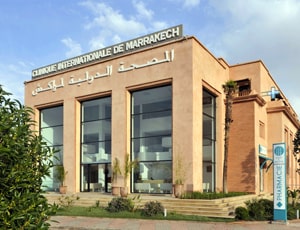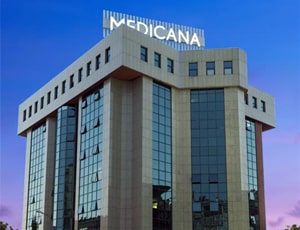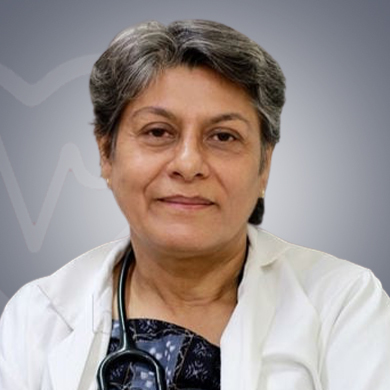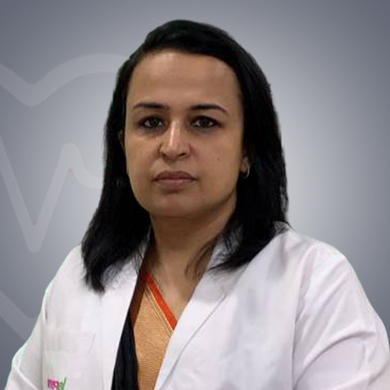The natural process of fertilization involves the conjugation of an egg and sperm inside the woman’s body. In-vitro-fertilization (IVF) is the procedure that involves the conception of an egg outside the body in a laboratory. IVF comes under assisted reproductive technology (ART) that involves the use of advanced medical technology to help with pregnancy in the woman.
The different types of treatments available for IVF are:
Assisted hatching is a technique used in IVF where a gap or a hole is created on the outer shell of the embryo called zona pellucida before transferring the embryo into the mother’s womb. Before the implantation of the embryo, the developing embryo should “hatch” out of its outer shell (zona pellucida).
Sometimes the embryo is thick, which decreases its ability to hatch on its own. Making a hole or thinning the outer layer may help the embryos to hatch, which increases the chances of pregnancy. Pregnancy cannot occur unless the embryo hatches. Thus, assisted hatching IVF success rates are higher than simple IVF success rates.
Because of the use of additional technology, IVF with laser assisted hatching cost is higher than just IVF cost.
IVF with laser assisted hatching is recommended when:
It is performed by using
It is performed before transferring the embryo into the mother’s womb on day 3, 5, or 6 after fertilization. An opening in the zona pellucida is created by drilling it with acidified tyrode’s solution.
The embryo is held firmly using holding pipette and a microneedle is applied
The acid is expelled over a small area of zona pellucida until it is breached. Suction is applied immediately after the breach of zona pellucida to prevent excess
This procedure Is exactly the same as the usual IVF procedure with a difference that the egg used for fertilization comes from a different candidate than the one undergoing IVF. This procedure involves a process known as female egg donation in which a suitable candidate donates an egg for successful fertilization with the retrieved sperms.
The egg donation procedure is similar to how the eggs are retrieved from the womb of the future mother. The only difference is that during
IVF with egg donation is mostly performed in the case of women who have
Intracytoplasmatic sperm injection (ICSI) is an IVF variation in which the sperm is directly injected into the egg for fertilization. The resulting fertilized egg is placed in
ICSI procedure does not require the sperm to penetrate the layers of the egg. It is highly useful to treat infertility problems in couples who suffer because the male partner’s sperms are either not able to get into the egg or are unable to fertilize the egg even when they are able to get through it.
During IVF with ICSI procedure, the eggs are extracted and held in one place with the help of a glass tool. A single sperm is injected into each egg using a small glass tube. The eggs are cultured and checked for fertilization overnight. The fully fertilized eggs are selected. A few fertilized eggs selected are placed in the uterus with the help of a catheter. The leftover embryos are preserved for future use.
While in simple IVF, the eggs and sperms are mixed together and allowed to fertilize naturally, in ICSI, a sperm is forced into the sperm for fertilization.
ICSI success rates largely
IVF with ICSI is also performed when the sperms come from a suitable donor and not from the male partner of the female undergoing IVF procedure. ICSI IVF treatment is the same when conducted with donor sperms as it is with sperms that come from the male partner.
ICSI treatment involves the injection of a single sperm directly into the egg from the female partner or a donor. In the case of ICSI with donor sperms, a semen sample from a suitable donor is retrieved. The sperm sample is processed and viable and good quality sperms are extracted from for further procedure.
Next, the entire ICSI procedure is conducted in a similar manner. ICSI success rates are the same whether the sperm comes from a donor or the actual male partner. ICSI treatment cost is separate from the cost of IVF.
Optical spindle view is a specialized technique used at the time of IVF and ICSI. This technique helps the fertility specialists view the division of cells carefully to ensure that the entire process goes on smoothly.
The optical spindle view technique is used after the fusion of the eggs and the sperms
Sometimes during IVF and ICSI, the fertility specialist may order a testicular biopsy to assess testicular function in the male partner before using his sperms. During
IVF is a tedious procedure that could be mentally and financially taxing for the couple. Therefore, it is important for couples to know everything about the procedure in advance. Ask everything about the procedure from the IVF specialist and clarify any doubts that you may have.
You may be required to undergo a series of tests and examination before the IVF procedure. The tests typically include a semen analysis, ovarian reserve testing, disease screening, uterine cavity exam, and a mock embryo transfer.
Step 1: Over-stimulation of ovulation
Stimulation of the ovaries occurs with the administration of fertility drugs. The natural process involves the production of one egg per month, but the fertility drugs hyperstimulate the ovaries to produce more number of drugs.
Step 2: Retrieval of eggs
Removal of the eggs from the woman’s body is done through a minor surgery called follicular aspiration surgery. Pain medications are given to the woman and with the help of ultrasound, a thin needle attached to the suction pump is inserted into the vagina. The needle is directed towards the follicles containing eggs and suctions the fluid and the eggs.
Step 3: Insemination
The inactive cells from the semen are removed. The ovum and the sperms are incubated in the ratio of 1:75,000.
Step 4: Fertilization
The sperm enters the egg and fertilization takes place. If the sperm is found to be weak, then Intra-cytoplasmic sperm injection (ICSI) is performed which involves direct injection of sperm into the ovum.
Step 6: Culture of the embryo
After fertilization, the egg divides forming an embryo. The embryo rapidly divides within five days after fertilization.
Genetic diagnosis is performed after 3-4 days of fertilization to rule out the genetic disorders.
Step7: Transfer of the embryo
The embryos are transferred into the mother’s womb after 3-5 days of fertilization. This transfer is done with the help of a thin tube containing embryos. The tube is inserted through the vagina, cervix, and to the womb. Pregnancy is resulted if the embryo starts growing.
If you have experience symptoms such as fever, pelvic pain, bleeding, and blood in urine, consult your physician immediately.
The IVF treatment cost in India is much less as compared to a majority of other countries. The difference in the IVF process cost in India and the Western countries such as the US and UK is, in fact, quite huge.
Couples wondering how much IVF cost in India should know that they end up saving a huge amount of money when the decide to undergo IVF cycles at a renowned hospital in India. The total artificial insemination cost is extremely affordable, despite the fact that it includes all overhead expenses such as that of medicines and technology use.
The following table indicates the per cycle cost of IVF treatment in India and some of the other popular medical tourism destinations:
Cost of IVF Treatment in India and Abroad
| Treatment cost in IVF (In Vitro Fertilization) Cost in India: | 3200 |
| Treatment cost in IVF (In Vitro Fertilization) Cost in Turkey: | 3510 |
| Treatment cost in IVF (In Vitro Fertilization) Cost in Spain: | 6840 |
| Treatment cost in IVF (In Vitro Fertilization) Cost in United Arab Emirates: | 7000 |
| Treatment cost in IVF (In Vitro Fertilization) Cost in Singapore: | 11200 |
| Treatment cost in IVF (In Vitro Fertilization) Cost in Thailand: | 8000 |
| Treatment cost in IVF (In Vitro Fertilization) Cost in Israel: | 8000 |
| Treatment cost in IVF (In Vitro Fertilization) Cost in Tunisia: | 6000 |
| Treatment cost in IVF (In Vitro Fertilization) Cost in United Kingdom: | n/a |
| Treatment cost in IVF (In Vitro Fertilization) Cost in Lithuania: | 4200 |
| Treatment cost in IVF (In Vitro Fertilization) Cost in Morocco: | 3000 |
| Treatment cost in IVF (In Vitro Fertilization) Cost in Cambodia: | n/a |
| Treatment cost in IVF (In Vitro Fertilization) Cost in Malaysia: | 5000 |
| Treatment cost in IVF (In Vitro Fertilization) Cost in South Africa: | 4600 |
| Treatment cost in IVF (In Vitro Fertilization) Cost in Switzerland: | n/a |

Delhi, India
Equipped with more than 50 specialty institutes, Indraprastha Apollo was started with the vision of ...more
![]() Private Driver / Limousine Services
Private Driver / Limousine Services
![]() International Cuisine
International Cuisine
![]() Phone in Room
Phone in Room
![]() Online Doctor Consultation
Online Doctor Consultation

Marrakesh, Morocco
History Clinique Internationale Marrakech is opened to provide world-class medical services to the ...more
![]() Airport Transfer
Airport Transfer
![]() Choice of Meals
Choice of Meals
![]() SIM
SIM
![]() TV inside room
TV inside room

Istanbul, Turkey
Founded in 1999, Medicana Camlica is a specialty hospital of the Medicana Group which is well known ...more
![]() Private Driver / Limousine Services
Private Driver / Limousine Services
![]() International Cuisine
International Cuisine
![]() Phone in Room
Phone in Room
![]() Online Doctor Consultation
Online Doctor Consultation

Reproductive Medicine & IVF Specialist
Delhi, India
15 Years of experience
USD 32 for video consultation

Infertility & Laproscopy & Gynecologist
Delhi, India
38 Years of experience
USD 50 for video consultation

Infertility Specialist
Delhi, India
17 Years of experience
USD 28 for video consultation

Infertility & Laproscopy & Gynecologist
Delhi, India
18 Years of experience
USD 35 for video consultation
Q. What lifestyle changes are required after the pregnancy has been confirmed?
A. Smoking and drinking alcohol should be avoided as they may cause low birth weight and fetal distress syndrome.
Q. When is the pregnancy test performed after egg retrieval?
A. The pregnancy test is performed after two weeks of egg retrieval.
Q. Do I have the higher chances of miscarriage when compared with normal pregnancy?
A. No, the chances of miscarriage are same for both IVF and normal pregnancy.
Q. If I don’t become pregnant after embryo transfer, can I try the procedure again?
A. Yes, you can try for the procedure again after completing two menstrual cycles.
Q. What should I do if I become pregnant after embryo transfer?
A. An ultrasound scan will be performed, and you should refer obstetrician for further treatment.
Q. What is in vitro fertilization cost?
A. IVF cost depends on the number of cycles that are repeated until a healthy embryo is transferred into the womb of the mother at blastocyst stage.
Q. What is the cost of IVF treatment in India?
A. IVF price in India varies from one hospital to the other. Despite the variation, the total IVF expense in India turns out to be less than one-tenth of what it costs in the western countries.